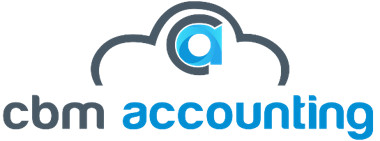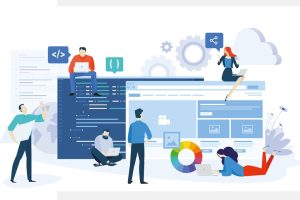[lwptoc]
Software houses in the UK operate in a dynamic and often complex environment. Managing finances effectively is crucial for sustained growth and profitability. This post provides essential accounting and tax tips tailored to the unique needs of software development companies.
Project Costing and Time Tracking:
- Detailed Time Tracking: Implement robust time-tracking software to accurately capture billable hours and project costs. This is vital for accurate project costing and invoicing.
- Project-Based Accounting: Utilize accounting software that allows for project-based accounting, enabling you to track revenue and expenses for each project separately.
- Resource Allocation: Monitor resource allocation to ensure projects stay within budget and deadlines.
- Cost Analysis: Regularly analyze project costs to identify areas for improvement and optimize resource utilization.
Revenue Recognition:
- Software Development Contracts: Understand the specific revenue recognition rules applicable to software development contracts, particularly those involving long-term projects or subscriptions.
- Percentage of Completion Method: If applicable, use the percentage of completion method to recognize revenue based on project progress.
- Subscription Revenue: Properly account for subscription revenue and deferred revenue.
- Licensing Agreements: Understand the tax implications of software licensing agreements.
R&D Tax Credits:
- Eligible Activities: Determine if your software development activities qualify for R&D tax credits.
- Documentation: Maintain detailed documentation of your R&D projects, including technical specifications, project plans, and cost breakdowns.
- Claim Process: Understand the R&D tax credit claim process and deadlines.
- Professional Advice: Seek professional advice from a specialist R&D tax consultant.
Intellectual Property (IP) Management:
- IP Valuation: Understand the value of your IP assets and consider IP valuation for tax planning purposes.
- Patent Box: If applicable, explore the Patent Box regime, which offers a reduced Corporation Tax rate on profits derived from patented inventions.
- IP Protection: Implement robust IP protection measures to safeguard your software and other IP assets.
Plan for Corporation Tax
Corporation tax applies to software houses registered as limited companies. The standard rate is 25% (or 19% for lower profits). Strategies to reduce corporation tax include:
- Claiming allowable expenses (software licenses, hosting, marketing, travel)
- Using capital allowances for IT equipment and cloud infrastructure
- Leveraging R&D tax credits
VAT Considerations:
- Digital Services: Understand the VAT rules applicable to digital services, particularly for international sales.
- Place of Supply Rules: Determine the place of supply for VAT purposes, especially for cross-border transactions.
- VAT MOSS (Mini One-Stop Shop): If you sell digital services to EU consumers, consider using VAT MOSS to simplify VAT reporting.
- Making Tax Digital (MTD): Ensure compliance with MTD for VAT by using compatible accounting software.
Cloud Services and Subscriptions:
- Software as a Service (SaaS) Expenses: Properly account for SaaS subscriptions and other cloud-based expenses.
- Data Storage and Hosting: Claim expenses related to data storage and hosting services.
Employee Costs and Benefits:
- Payroll Management: Use payroll software to streamline payroll processing and ensure compliance with employment regulations.
- Employee Benefits: Offer competitive employee benefits packages to attract and retain talent.
- Share Option Schemes: Consider implementing share option schemes to incentivize employees.
Tax Planning Tips:
- Corporation Tax: Understand your Corporation Tax obligations and payment deadlines.
- Allowable Expenses: Claim all allowable business expenses, such as software development costs, marketing expenses, and training costs.
- Business Structure: Consider the tax implications of your business structure.
- Tax-Efficient Investments: Explore tax-efficient investment options, such as ISAs and pensions.
- Seek Professional Advice: Consult with an accountant or tax advisor specializing in the software industry.
Utilize Technology:
- Cloud-Based Accounting Software: Use cloud-based accounting software for easy access and collaboration.
- Project Management Software: Implement project management software to track project progress and costs.
- CRM (Customer Relationship Management) Software: Utilize CRM software to manage customer relationships and sales.
Regular Financial Reviews:
- Monthly Reviews: Conduct monthly reviews of your financial statements to identify trends and areas for improvement.
- Project Profitability Analysis: Regularly analyze project profitability to ensure projects are meeting financial targets.
- Cash Flow Forecasting: Develop and regularly update cash flow forecasts.
By implementing these accounting and tax tips, software houses can improve their financial management, reduce their tax liability, and increase their profitability. Remember to seek professional advice when needed and stay up to date with changes in relevant laws and regulations.

